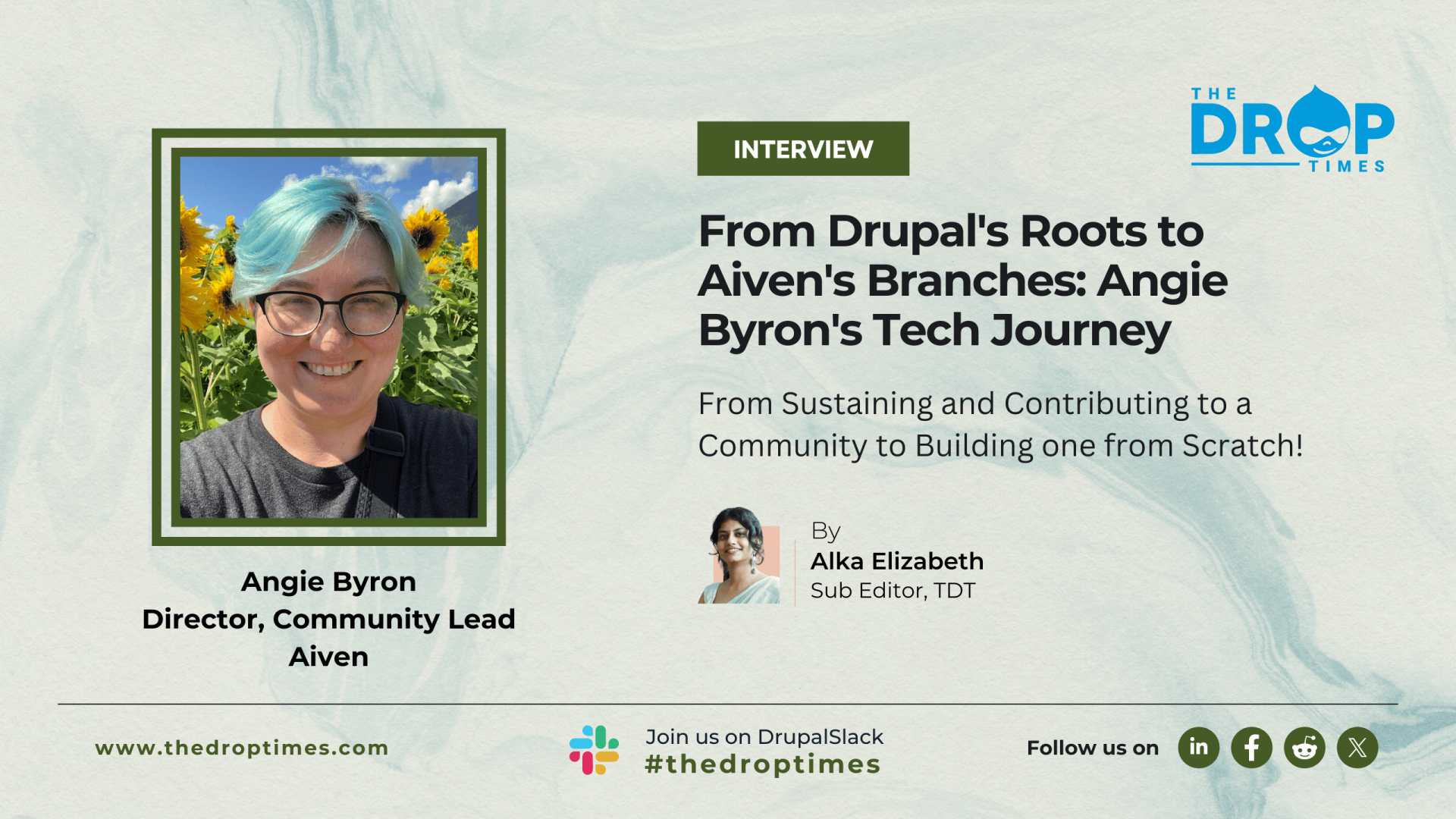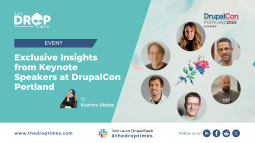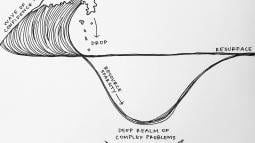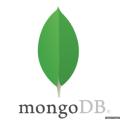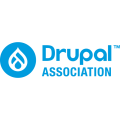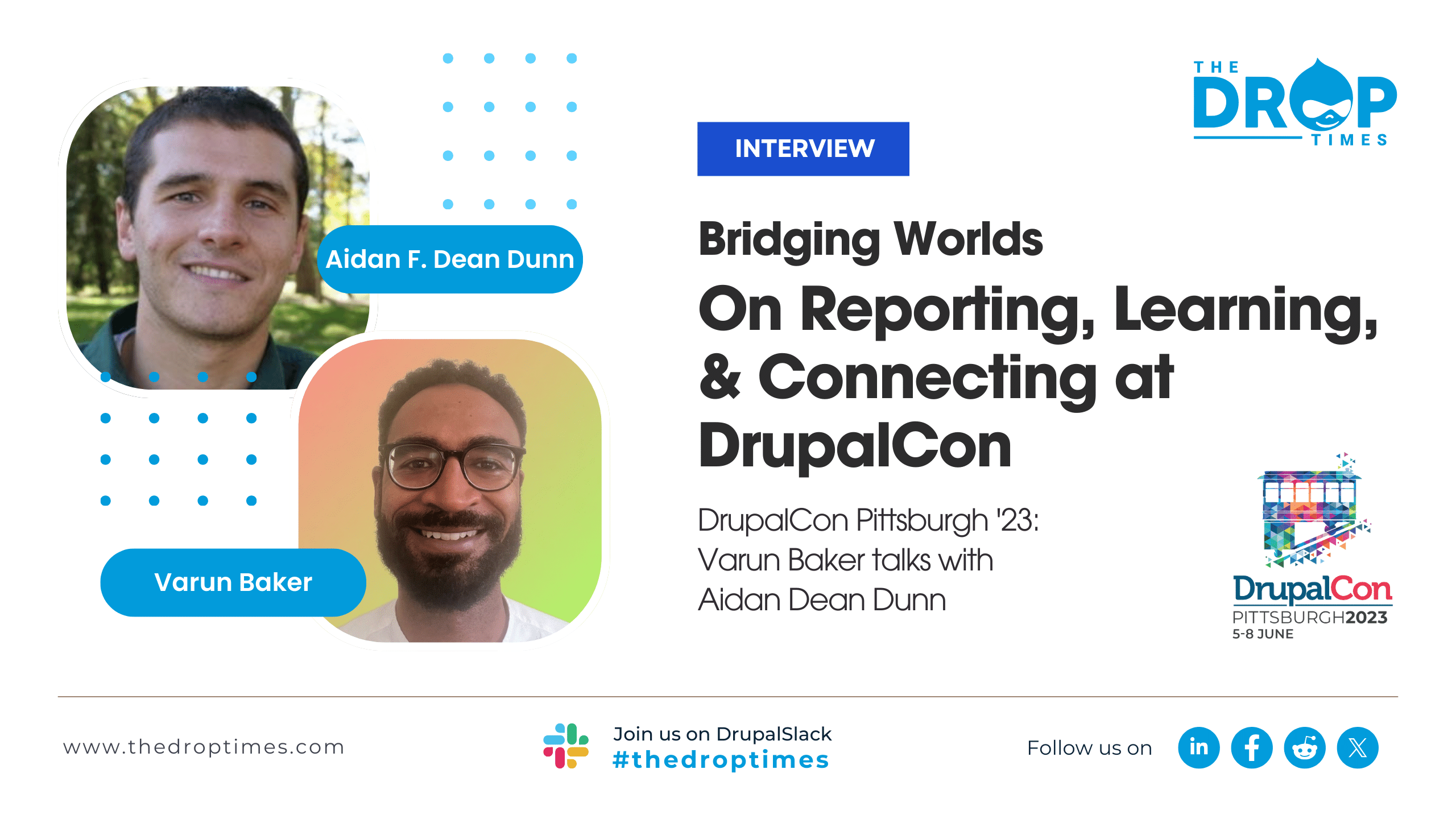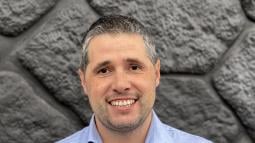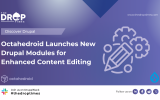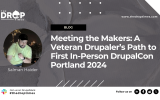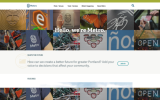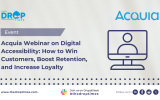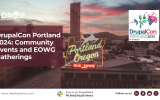From Drupal's Roots to Aiven's Branches: Angie Byron's Tech Journey
A detailed and insightful conversation unfolds as Alka Elizabeth, a sub-editor at The DropTimes, sits down with Angie Byron, the Community Director at Aiven and a highly respected figure in the open-source community. Angie, known for her profound contributions to the Drupal Project, brings a wealth of experience from her previous roles at MongoDB, Acquia, and beyond. Her journey from participating in Google Summer of Code to becoming a Drupal Core Co-Maintainer and Product Manager illustrates her deep commitment to the tech community.
Throughout the interview, Angie shares her experiences and the pivotal decisions that have shaped her career. She discusses the challenges and transformations she faced, such as the introduction of automated testing in Drupal, her leadership roles in community projects, and her advocacy for diversity and inclusion within tech communities. Her transition from hands-on development to strategic community management and her role at Aiven highlight a career driven by a passion for empowering others and fostering collaborative environments.
This conversation also explores Angie's thoughts on maintaining personal well-being in tech, the impact of mentorship and diversity in Drupal, and her ongoing learning projects in the broader open-source ecosystem. Her insights are invaluable for anyone interested in the dynamics of open-source communities, the evolution of technology roles, and the integration of diversity within tech spaces.
Please read on.
TDT [1]: Reflecting on your initial journey, can you describe the transition from a Google Summer of Code participant to a Drupal Core Co-Maintainer and Drupal Core Product Manager?
Angie Byron: As a Google Summer of Code student, one of the requirements from our mentors was to code our projects against the development version of Drupal core (4.7.x at the time). While chasing a moving target, I ended up finding core bugs from time to time and became familiar with the core development process (and became part of the team!) by submitting fixes for them.
I would also sometimes find the same bugs. So I developed a whole whack of manual tests against every patch I tested, which would often uncover that, e.g. the installer had broken, or we’d screwed up checkboxes again. As you can imagine, this was quite tedious and time consuming, so I became passionate about getting another Google Summer of Code project—the Drupal automated test suite—into the core to speed this process up significantly. I made that one of the “pillars” of my application to become a co-committer on Drupal 7.
My other “pillar” was Drupal’s user experience. I was incredibly fortunate to be able to attend the very first formal usability testing for Drupal at the University of Minnesota, and the results were incredibly eye-opening: web developers with tons of experience when confronted with Drupal could NOT figure it out, and this lit a fire within me to fix these problems.
Given those pillars, Dries Buytaert appointed me as Drupal Core Co-Maintainer for Drupal 7. I worked alongside the D7 UX team to help get their changes into core and later led Acquia’s Spark initiative to modernize the authoring experience. From there, it was a pretty natural progression to becoming a Product Manager since this is a core committer with a specific focus on user-facing changes.
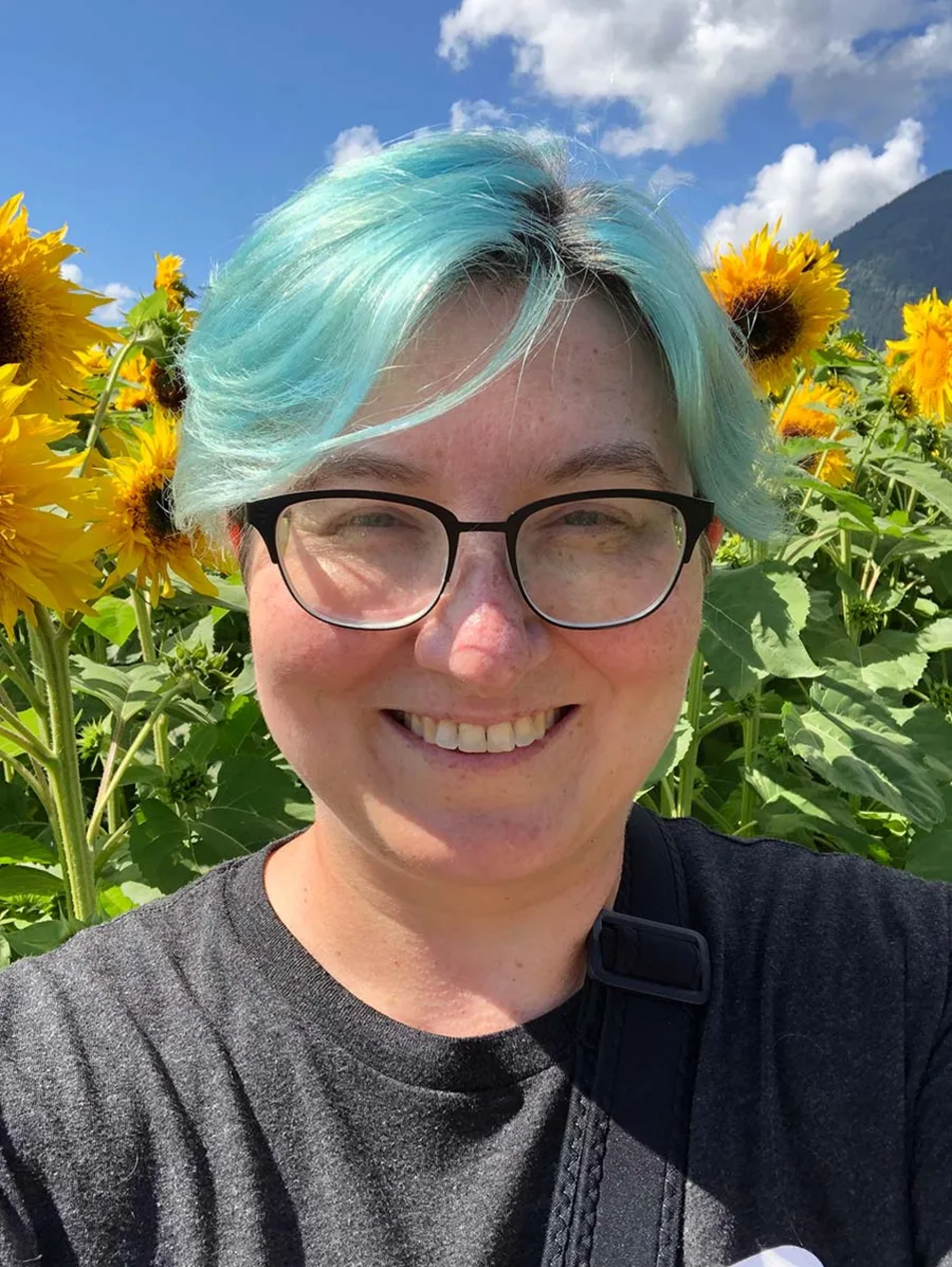
TDT [2]: What have been the most impactful aspects of the Drupal community's diversity and self-critical approach for you? How do you see these elements shaping the future of Drupal?
Angie Byron: One thing that Drupal has done well over the years is ensuring that there are folks from underrepresented groups in meaningful leadership roles throughout the project. The Drupal Association board, for example, has about a 50/50 split on gender diversity. There are women on the core committer team and prominent women leaders contributing code, running events, running our Mentorship program, and more. One thing we’ve done less well is on racial diversity, although this has been strongly pushed for as part of the Drupal Diversity & Inclusion initiative. I also appreciate that the software itself pushes for inclusion through things like our Accessibility commitment.
For the future of Drupal, as it relates to diversity, one thing we need to keep an eye on is that our community is skewing older and older (both in terms of age and in terms of time with the project). It’s important for us to continue to attract new contributors with new energy and new ideas. I think some of the Innovation initiatives are pretty interesting for this.
TDT [3]: You made a significant career decision ascending to become the core co-maintainer for the Drupal 7 release. Can you delve into the thought process behind choosing a more organizational role over individual development work and how this choice has influenced your professional trajectory?
Angie Byron: I mused on this quite a bit in the "Drupalchix" group back in the day. I basically found myself at a bit of a crossroads in my career where I could either stay on the “developer” track or I could shift to the “empowering other developers” track. But I have always been a sucker for having a big impact, and helping 4,000 core contributors be awesome has definitely had far more impact than bashing my face on the desk repeatedly over missing semicolons.
Fast-forward quite a few years later, I’m now on the “management” track and helping teams, individuals, and organizations to be successful. And while I do miss coding from time to time (maybe once a month or so, I get a chance to pop open vi for something), I don’t regret that original decision for a single second.
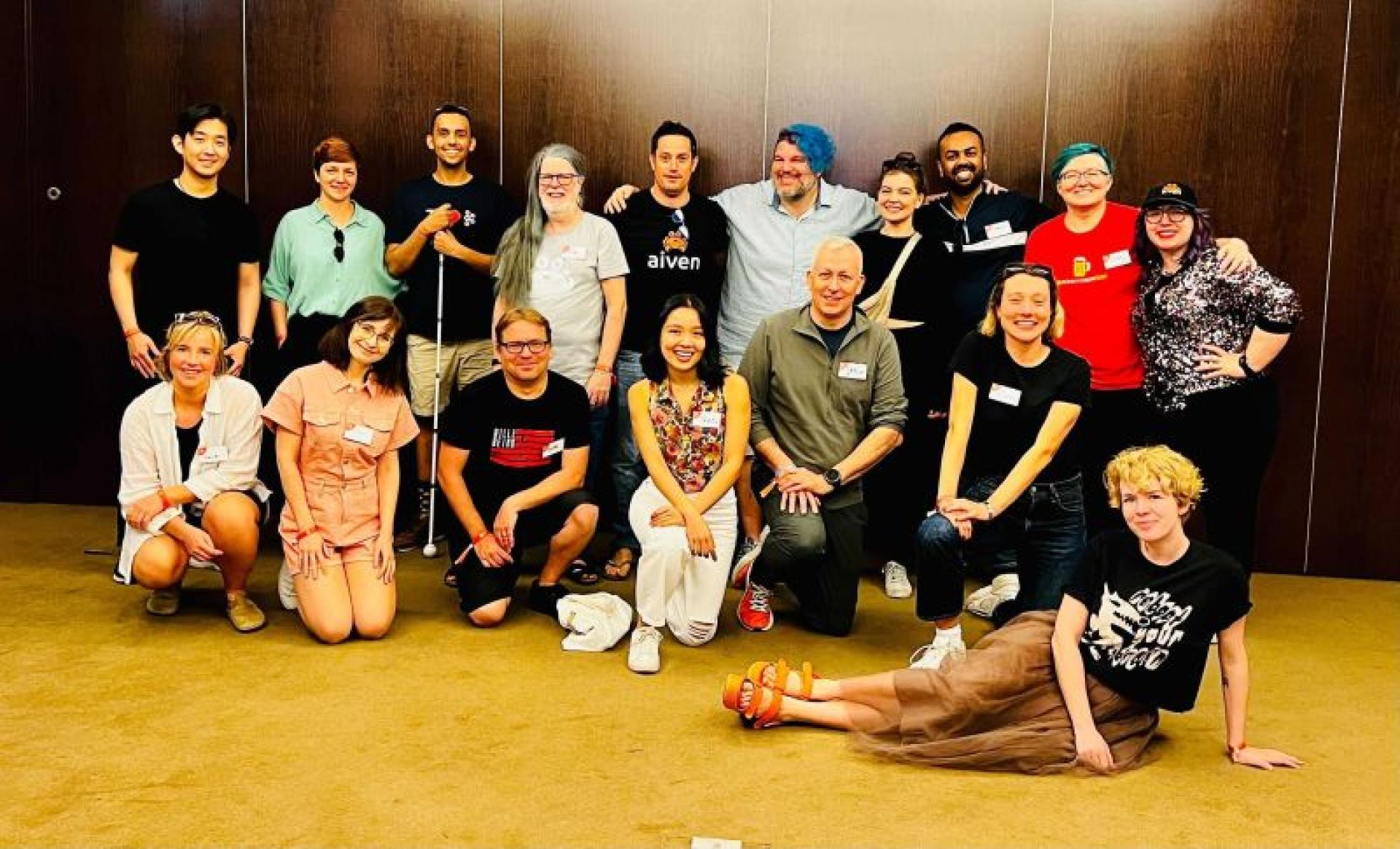
TDT [4]: Your work in leading groups like Women In Drupal and Rainbow Drupal has been commendable. Can you share a story or two where you witnessed the tangible impact of these initiatives on participants' careers or lives?
Angie Byron: I think the biggest thing that stands out to me is we’d have these meetups at DrupalCon for Drupalchix / Women in Drupal, where we’d all go around the room and introduce ourselves and say what we did with Drupal. And one by one, almost everyone would say things like “Well, I’m not technical BUT…” and then go on to say all of the EXTREMELY TECHNICAL things they did, like writing custom themes or maintaining a huge Drupal multisite installation or what have you.
We used to gently call this out when it happened and note that some of the most prominent women contributors in the room were, for example, the most computer-savvy person at their church or in their second career after time being a court or what have you. It was often a “lightbulb moment” for them, that you didn’t need a computer science degree to be “technical” and in fact, almost *no one* in the room had that background, including most of the women they looked up to. Many women went on from those meetups to become public speakers, leaders of important initiatives, Drupal company owners, and more.
TDT [5]: In your extensive experience, how has the principle of contributing to something larger than oneself in the open-source community influenced your personal and professional growth? Moreover, how do you balance this with the challenges of ensuring mental and emotional well-being within tech communities?
Angie Byron: I’ll be honest, I am not the best role model for this since “SOMEONE’S COUNTING ON ME!!” is one of the primary ways I work around my ADHD symptoms. At one point in my career, I got burnt out to the point of having to take a couple of months away from *everything*. Since then, I’ve tried hard to listen more to my body, set “family time” chunks in my calendar and religiously stick to them, and even go “outside” once in a while.
TDT [6]: Angie, in your recent article, you discuss the importance of building cross-functional empathy and a 'buddy system' within organizations for effective DevRel programs. Can you share how these strategies have personally impacted your approach to fostering collaboration and understanding within diverse teams, particularly in open-source projects?
Angie Byron: The advice in the cross-functional empathy article broadly applies to *any* large group of humans, and open-source projects are no exception. By really getting to know people and what their personal motivations are, you can better align your own efforts and work together for the greater benefit of both.
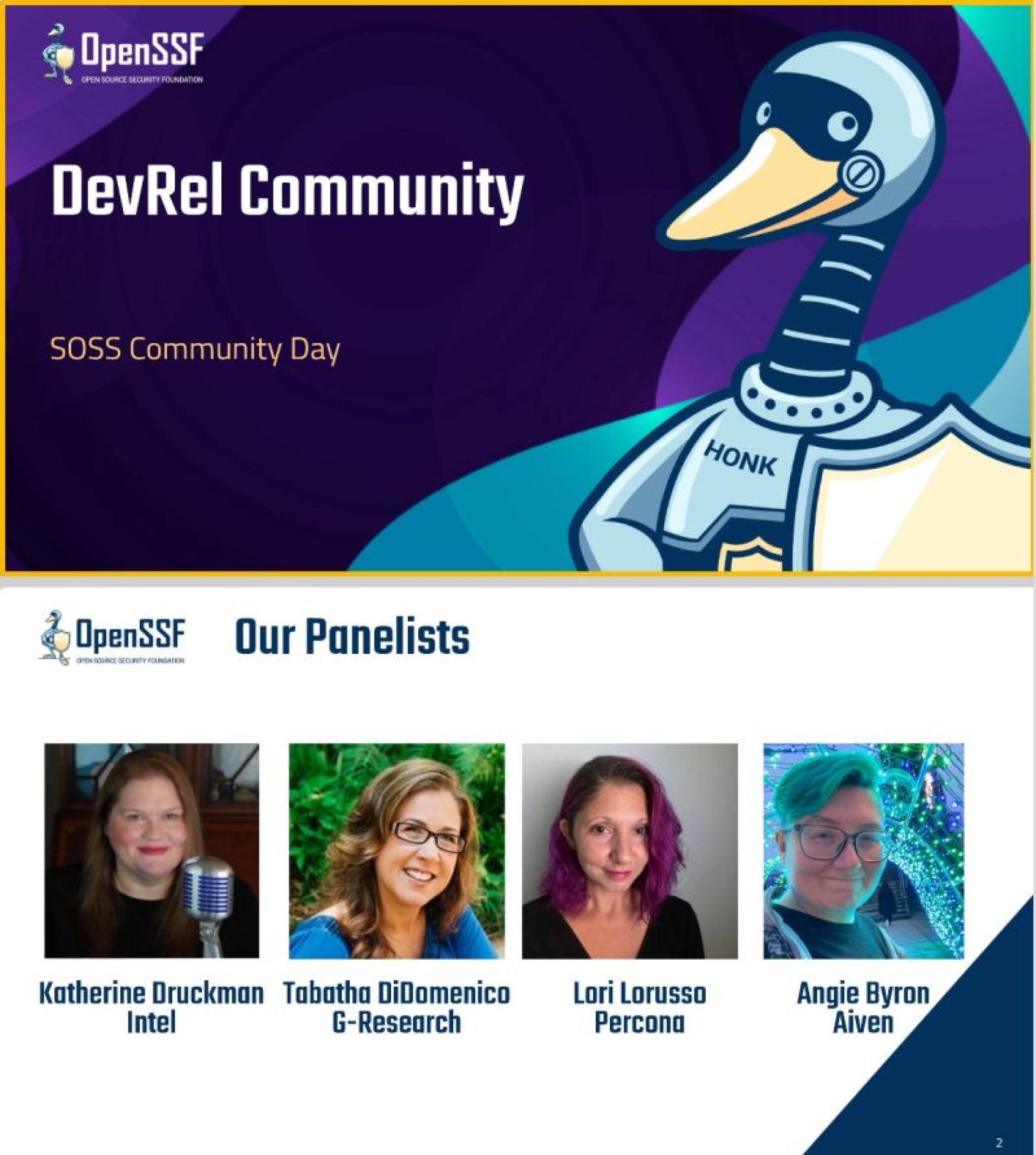
TDT [7]: Transitioning from your significant involvement with Drupal to your role of Director of Community at Aiven, how do you compare the community dynamics and your role in each? What lessons from Drupal have you applied to cultivating the community at Aiven?
Angie Byron: It’s been interesting because, with Drupal (and also at MongoDB), a lot of the community management challenges stemmed from the MASSIVE scale of those communities. We introduced things like governance, core gates, provisional maintainers, etc., because it was simply not possible for everyone to know everyone else.
Whereas at a startup like Aiven with far less broad developer awareness (yet), the challenge is the exact opposite; you need to essentially build a community from scratch. So there, we’ve done things like create an Open Source Data Infrastructure community, since *infinitely* more people have heard of things like Apache Kafka, MySQL, and OpenSearch than have heard of Aiven.
But at either end of the spectrum, some solid community pillars broadly apply, which are touched on in my Lessons Learned From Scaling An Open Source Community By 10,000% talk:
- Make diversity and inclusion a founding principle
- Take Community Ownership to extremes
- Never miss a chance to celebrate your community
TDT [8]: You've seen Drupal evolve over the years, particularly with the move from CVS to Git, which you championed. Reflecting on this, what were the key lessons learned from managing such a significant transition within the community? How do you apply these lessons to current projects or challenges?
Angie Byron: The CVS => Git migration project first got off the ground because I was honestly sick and tired of answering the question “Why is Drupal still on CVS?!” at least once a week in IRC, and I decided to do something about it.
Some of the key lessons were:
- Use a data-driven decision-making process (qualitative data also counts). Here, we looked at usage data (both broadly and within our own community), prototyped onboarding documentation to estimate the impact on contributors, observed how active each respective group of volunteers was, etc.
- The higher the stakes of a given decision, the more you need to ensure people’s voices are heard. One key way I cat-herded this discussion to completion was by listening a lot and summarizing periodically for busier folks, making sure to capture honestly where the conversation was at. This had a way of dispelling tension because folks could see their points were captured, even if the decision went another way.
- Ask for help when you need it — Had we merely made a decision and not followed through, this entire effort would be for naught. The Drupal Association stepped up to hire folks to get it done in relatively short order, which was key to its success.
I would say I use pretty much all of these to this day, not just in my work life but in my day-to-day life as well.
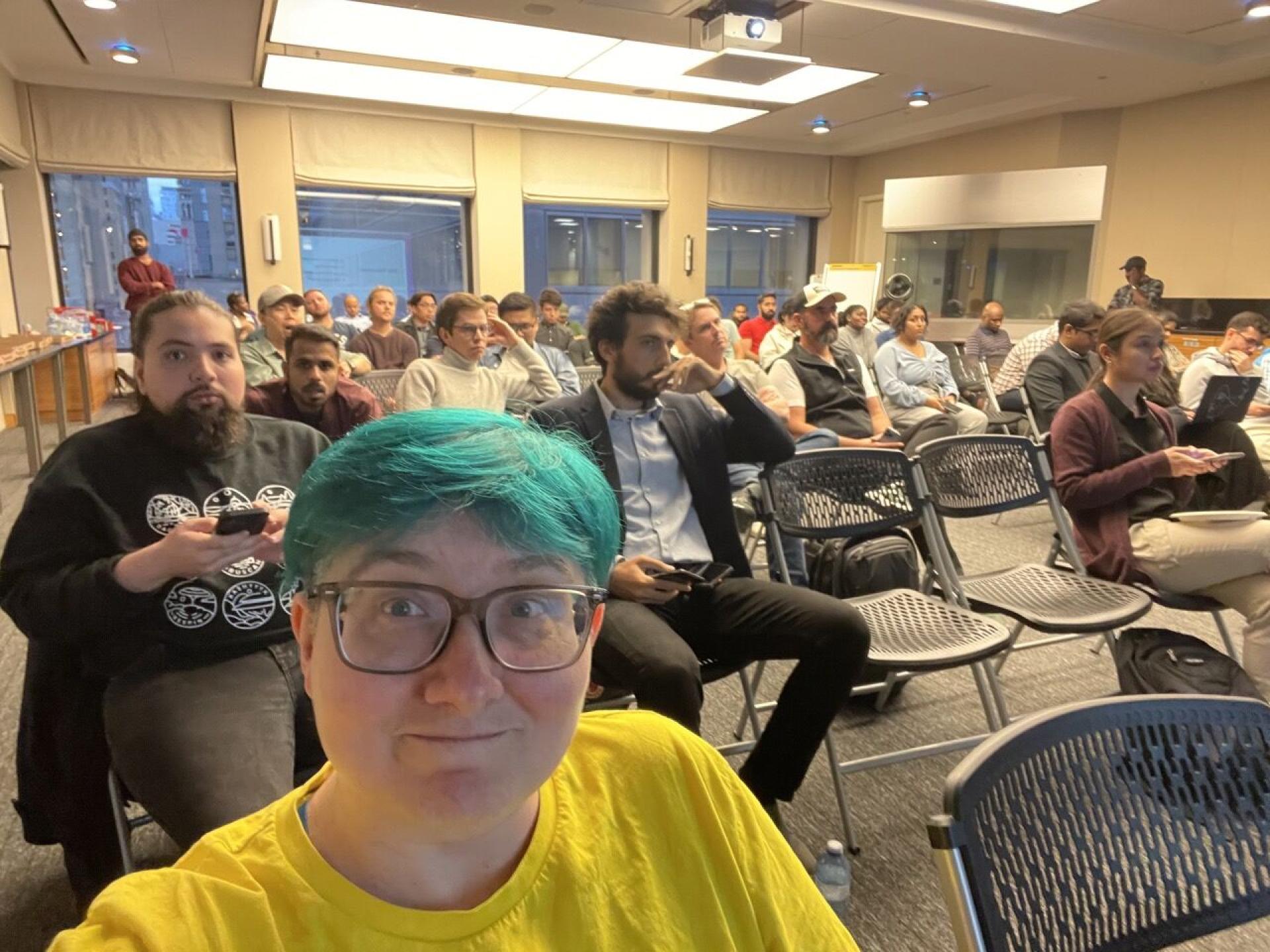
TDT [9]: You've strongly advocated continuous learning and development within technology and open source. Can you share your current learning goals or projects and how they relate to your ongoing contributions to Drupal and the wider open-source ecosystem?
Angie Byron: I’ll be honest that I sadly don’t do too much with Drupal anymore these days, as my role at Aiven keeps me pretty busy. However, since I work for an open-source data platform company, I’ve been spending time learning more about the communities of the various open-source projects on our platform. I’ve also been experimenting with practical uses of AI (which I sometimes write about on Tech Around And Find Out) and following the discussions around the definition of Open Source AI. And finally, I’ve been combining my love of open source and my love of security by volunteering with the OpenSSF’s DevRel Community, which I’ll be talking more about at the Open Source Summit in a couple of weeks.
TDT [10]: You've highlighted the Drupal community's diversity and mentorship culture as strengths. As a founding Board member of the Drupal Association and a Drupaler who strongly advocates for DEI, what steps can the community take to further enhance diversity and inclusion, especially for underrepresented groups?
Angie Byron: It would be very cool to see Drupal leadership build formal partnerships with organizations such as ColorStack, Black Girls Code, and Women Who Code. Combining the Drupal community’s fantastic mentorship prowess with folks from underrepresented groups eager to learn could be a fantastic way to help both.
Just remember… it’s not enough to have underrepresented folks merely in the project; they need to be taking on important roles. The more underrepresented folk see people like themselves in leadership roles, the more Drupal will signal that it’s a great place for people like them!
Disclaimer: The information provided about the interviewee has been gathered from publicly available resources. The responsibility for the responses shared in the interview solely rests with the featured individual.
Note: The vision of this web portal is to help promote news and stories around the Drupal community and promote and celebrate the people and organizations in the community. We strive to create and distribute our content based on these content policy. If you see any omission/variation on this please let us know in the comments below and we will try to address the issue as best we can.



